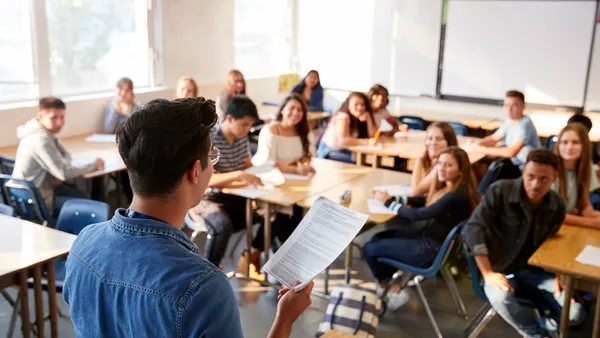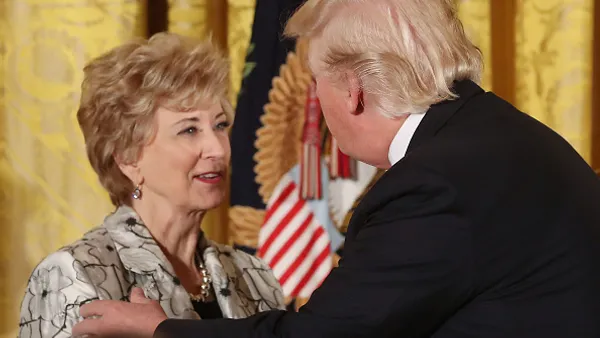Dive Brief:
- After an early road bump in the 1990s, video games are starting to gain momentum as a tool for teachers to use in driving home classroom learning, with the U.S. Department of Education hosting a mini-conference at E3, the video game industry's largest trade show, last week.
- The Education Department and the White House have supported the movement via conferences and events focused on potential collaborations, and the federal ConnectED initiative could eliminate some of the technical hurdles.
- Recent examples of education-adapted games include SimCityEDU and Plants vs. Zombies, but many are still in the conceptual stage.
Dive Insight:
Whether the future of video games as an education tool is bright depends on how you look at it. On the one hand, the technology is abundant, students are excited about it, and more pots of money are available for tech innovators to get their tools to the classroom. On the other hand, privacy concerns remain powerful in the minds of parents and students, video games aren’t yet at the top of school leaders' “must buy” lists, and, crucially, it’s not yet clear how learning-driven games can make the leap from social good to profitable endeavor.
“How do we create not just a philanthropic partnership with the ESA member organizations and companies, but actually a sustainable business partnership with these communities?” asks Jessica Lindl, the executive director of well-known ed tech nonprofit GlassLab, in an EdSurge feature on the trend.














